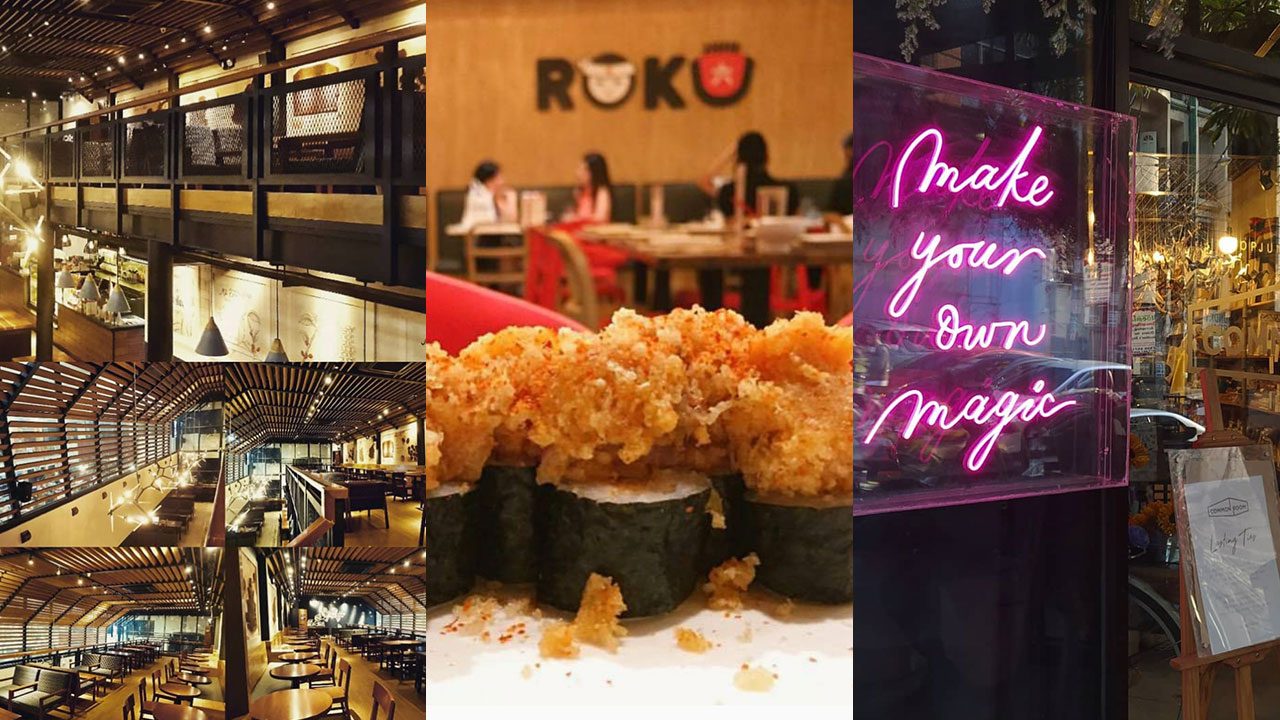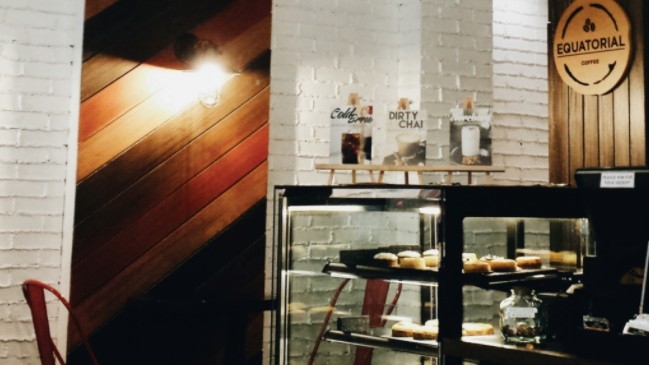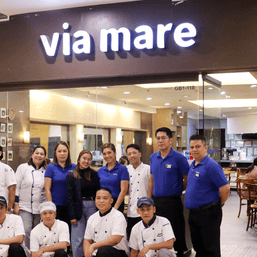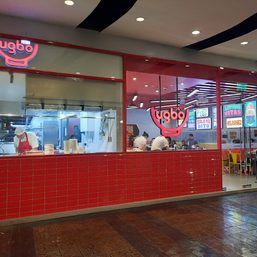SUMMARY
This is AI generated summarization, which may have errors. For context, always refer to the full article.

When students graduate from college, it is often with goodbyes full of celebration. For Ateneans, it’s through annual events like Pabaon, Blue Roast, and graduation. But this year, due to the COVID-19 pandemic, the Batch of 2020 left without really saying goodbye, thinking they still had a chance to return to the vibrant neighborhood of Katipunan.
After more than four months in quarantine, the home of Iskos, Knollers, and Blue Eagles has changed dramatically, with one business after another closing shop.
It’s a difficult reality to face for many students. Establishments around schools like UP, Ateneo, and Miriam College are what create the ecosystem that make life so dynamic and exciting for students in the area. The crowded little cafes and bars in the area are the extensions of these schools in everything but name.
As both alumni and current students mourn over the Katipunan they knew, they are also faced with the truth that the place that they once knew will never be the same.
Where home is and beyond
For Katipunan residences, certain parts of the semester (read: Finals Week) means a hefty dose of anxiety in the air. Spots such as MyPlace Residence Hall, Common Room, and Barenaked were key in relieving students from the stress.
“We would sneak into each other’s dorm rooms if [possible]. It was just spending time with friends that defined MyPlace. It was a hub,” said incoming fifth year Atenean Matthew Fernandez, who said that his four-year stay at MyPlace Residence Hall was how he found the friends he has now.
Common Room, located right next to MyPlace, is another location that has provided many students reprieve over the years. Well-loved by the Katipunan community, the little Esteban Abada shop was known for its walls lined with an ever-changing catalog of every kind of nugget and trinket you might want. “It was such a peaceful space,” said Ateneo alumni Issa Esguerra.
For Ateneo graduate Kim Bernardino, the little shop was a hub for artists in Katipunan. They used to host workshops for zine-making and the like. “Doon na hone kung [pagka-artist] ko. Common Room was a house for creators talaga,” says Bernardino (“My being an artist was honed there. Common Room was truly a house for creators.”)
Barenaked, in Xanland Place, is another Katipunan classic that was shut down because of the pandemic. “I first went there in high school. Every time I had a date or an event, Barenaked was the place to go,” says Miriam College High School and Atenean alumna Mar Argente.
Through food and coffee
More than providing sustenance for students, the restaurants and cafes of the famous avenue have provided everything from study areas to hang out spots.
One of them is the well-loved Katipunan branch of Bo’s Coffee. Formerly on the corner of B. Gonzales and Katipunan Avenue, the coffee shop had been a favorite amongst students even after it transferred to a renovated section of National Bookstore Katipunan.
Known for its good coffee and extremely cold air conditioning, Bo’s was a place to bond for students.
Roku, on the other hand, was a favorite restaurant for when you wanted to treat yourself and your friends. It often didn’t matter to many of Katipunan’s students how much this Japanese resto cost their wallets, because they it was the go-to place for any celebration.
Located on the fifth floor of the Oracle Building along Katipunan, they announced last May 28 that they were “pausing” after 8 years to create something new for the avenue it calls home. Many knew Roku as the only place in Katipunan where you could get high-quality Japanese food a skip away from school.
Another Esteban Abada Street gem that closed recently is Butcher’s Cafe. Hidden behind a former salad kiosk, this coffee shop served so many students with its fast wifi connection and brunch food for a little less than two years. Known for its little panenderia out front, the cafe has been a favorite spot for quite some time now, formerly another well-loved cafe, Equatorial Coffee.

On the rooftops and haunts of Katipunan
Tucked in the top of buildings and little corners lies Katipunan’s nightlife.
Bars in university areas fit a mold – they look trendy but serve drinks at prices that budgets funded by allowances can afford. More importantly, for most students, is where memories are made (or, forgotten).
Anyone who’s studied – or even spent a weekend – along Katipunan knows the “drill”: you hit a dive bar or watering hole after class, dance and drink the night away, and indulge even more at a fastfood chain of choice, where students, both drunk and sober, burn the midnight oil.
Rooftop, in particular, showed off the calm of Katipunan from up high every night. “It’s fresh air that made it different,” said Tolentino.
Black Rabbit, on the other hand, was an odd spot as it was located right above a co-working space (much to the chagrin of its clients and staff). The music was always too loud – thanks partly to the tradition of letting guests have free rein over the auxiliary cord of the speaker system.
“People aren’t going to be able to dance around in a really small area anymore. Usually, that’s what made bars [in Katipunan so special],” said Tolentino.
What happens next
Many people may argue that these closures are a part of the natural cycle of businesses, especially in Katipunan where landscape is always changing. But for a generation of students, the abruptness of this change can be jarring – on top of the already jarring changes everyone’s had to go through because of the pandemic.
“The fact that it changed so quickly, it [was] so jarring. It will feel so different, so weird. Those places, they helped us feel less alone,” said Fernandez.
Then there’s the loss of beloved spaces, and the chance to socialize outside class or the confines of the university. “Hindi ka lang nagkaka-interact with students or your fellow block mates inside the school,” said Bernardino (You don’t just interact with students or your fellow block mates inside the school).
Businesses – either the same ones that bid goodbye or iterations of the familiar – are sure to exist again eventually, as they always have through the years. But for those who’ve grown up in the Katipunan Avenue of 2019 and 2020, before the coronavirus came, bidding goodbye to your favorite restaurant becomes concrete proof that an era’s come to pass, representing memories of when they found and formed their identities.
For better or worse, that’s all they will be from now on ー memories. – Rappler.com
Alexandra Goño is a Rappler intern who recently graduated from Ateneo.
Add a comment
How does this make you feel?





There are no comments yet. Add your comment to start the conversation.